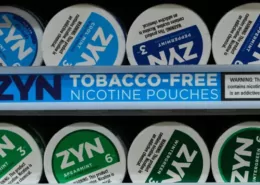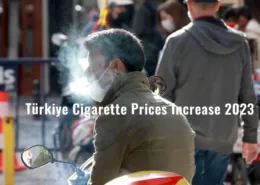Public Health Experts in Pakistan Call for Ban on E-Cigarettes
In Pakistan, public health experts are calling for a ban on e-cigarettes and other novel tobacco products due to their potential risks to both users and non-users. The seminar, organized by Blue Veins and Lady Reading Hospital, emphasized the need for policies and regulations to restrict the use and marketing of these products to protect public health. Experts presented the latest research on the harmful effects of heated tobacco products and called for further research to fully understand their long-term health effects. This translation provides an overview of the seminar’s discussions and highlights the urgent need for action to protect public health in Pakistan.
On March 20th, the local non-profit organization Blue Veins and Lady Reading Hospital (LRH) in Khyber Pakhtunkhwa, the largest tertiary healthcare facility serving the people, organized a provincial-level seminar on “Emerging Use of Novel Tobacco and Nicotine Products, including Heated Tobacco Products (HTP), its Impact on Public Health, and Required Response Measures in Khyber Pakhtunkhwa Province.”
The seminar, held on Sunday, aimed to highlight the public health implications associated with the emergence of new nicotine and tobacco products.
Healthcare professionals, researchers, policy-makers, and representatives from different organizations and government departments attended the seminar.
Speakers at the seminar included experts in tobacco control and public health. They presented the latest research on the harmful effects of heated tobacco products and discussed potential risks to users and non-users.
The speakers and attendees at the seminar called for an immediate ban on and regulation of the use and marketing of Velo, e-cigarettes, heated non-combustible HTP tobacco, and other smokeless tobacco products to protect the best interests of public health in the province.
The seminar also emphasized the importance of implementing policies and regulations that restrict the use and marketing of heated tobacco products.
The participants agreed that further research is needed to fully understand the long-term health effects of these products, and health authorities should not rely on facts and research provided by the tobacco industry.
Speeches and discussions were given by Dr. Sumaira Bakhtiyar, Assistant Professor of Family Medicine, Dr. Shumaila, Resident Pulmonologist, Nudrat Gul, Physiotherapist, Dr. Shehryar Khan, PGR Cardiologist, Dr. Laila Noushad, LRH Department of Psychiatry, Dr. Sufyan Khaliq, Assistant Professor, and Dr. Waseem Janjua, SDPI Tobacco Control Expert.
Deputy Commissioner of Human Rights and Relief, Mohammad Imran Khan and Assistant Commissioner, Misbah Wahid General said that the Khyber Pakhtunkhwa provincial government is committed to stopping the illegal trade and sale of cigarettes and other tobacco products. As a society, we need to be vigilant about the marketing strategies used by the tobacco industry to promote these new products.
Dr. Nek Dad, Director General of Health Services (DGHS) Public Health, said that the emergence of new tobacco products and HTPs is a cause for concern because these products are not without their own health risks. It is important that we make the public aware of the potential harm of these products and work to develop policies that restrict their use and marketing.
Tariq Barki, Deputy Director of LRH Hospital, said that the evidence is clear: new tobacco products and HTPs are not a safe alternative to smoking. They may be marketed as such, but science tells a different story. We need to prioritize public health over corporate profits and take action to protect people from the harmful effects of these products.
Qamar Naseem, Project Manager at Blue Veins, said that health experts and social activists are committed to promoting public health and raising awareness among people about the risks associated with heated tobacco products. We will continue to work together to educate people and policymakers about the dangers of these products.
- Is Vaping While Driving Illegal in New Mexico? - June 28, 2025
- Vaping Laws in New Mexico: Guide of Age, Flavors, Tax & Rules - June 28, 2025
- Vaping Laws in New Hampshire: A Comprehensive Guide for You - June 27, 2025









